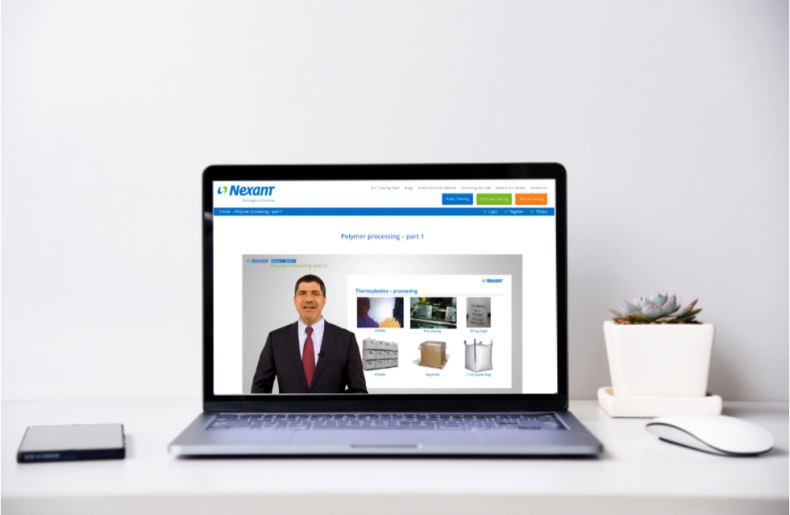Blogs
March 31, 2020What can you expect to learn from our online petrochemical training?

Nexant's online Petrochemical training course is the first, and most comprehensive online course available to the industry. Below we've outlined the learning objectives for each section so you can see exactly how you can benefit from joining our existing online cohort.
We're also offering a 30% discount when you register as an individual user or packaged for your entire team
Simply use discount code NexantOnline30 when purchasing your online training from our website: nexanttraining.com/online-training
Section 1 - Overview of the Petrochemical industry
- Get to know the petrochemical industry and the uses of chemicals
- Learn the types of hydrocarbon feedstocks, energy and reserves, i.e. crude oil, natural gas and coal
- Learn the seven chemical building blocks and their major derivatives, and understand how to make building blocks via the refinery, the crackers and through integration
- Recognise the business cycle and its impact on profitability, investment and restructuring
- Understand how the petrochemical industry functions, particularly in the U.S. Middle East and china, and major players in the industry
Section 2 - Ethylene and derivatives
- Understand the technologies and their evolution to make polyethylene and other ethylene derivatives
- Learn the market and applications of all chemicals in the C2 value chaine, including:
- Ethylene and Polyethylene
- Oligomers and Linear alpha olefins (LAO)
- VCM and PVC
- Ethylene oxide (EO) and Ethylene glycol (EG)
- Styrene and Polystyrene
- Ethanol
- Recognise the concept of bio-based chemicals, renewables and green chemicals
Section 3 - Propylene and derivatives
- Understand the on-purpose propylene technologies and those to make other propylene derivatives
- Learn the market and applications of all chemicals in the C3 value chain, including:
- Propylene and polypropylene
- Acrylic acid and super absorbent polymer (SAP)
- Acrylonitrile and acrylic fibers
- Propylene oxide (PO) and polyols
- Cumene, phenol, Acetone and methyl methacrylate (MMA)
- Understand composition of the C4 stream and how C4s are produced and separated;
- Understand the technologies to make C4 derivatives
- Learn the market and applications of all chemicals in the C4 value chain, including:
- Butadiene and rubbers, e.g. polybutadiene rubber (PBR), styrene butadiene rubber (SBR); tyre construction; major elastomers; thermoplastic elastomers (TPEs)
- ABS, Butene-1 and butene-2
- Isobutylene and MTBE
- MTBE production and demand
- Learn the debate on using MTBE as a fuel additive in the U.S.
- Understand the different technologies on making and separating aromatics, e.g. primary and secondary aromatics sources, on-purpose aromatics technologies
- Understand the technologies to make aromatics derivatives
- Learn the market and applications of all chemicals in the C5 value chain, including:
- Benzene and Toluene
- Cyclohexane and polyamide (Nylon), e.g. nylon 6,6 and nylon 6
- Polyurethanes (PU), e.g. MDI, TDI
- Xylenes, PTA and PET
- Phthalic anhydride and Plasticizers, e.g. unsaturated polyester resins (UPR)
- Learn the PET materials through a short demonstration and understand the engineering involved in the plastics bottle business
Section 6 - Syngas and derivatives
- Understand the different sources of synthesis gas and the value chains of ammonia and methanol
- Understand the conversion of coal to chemicals and Fischer-Tropsch technology
- Understand the technologies to make syngas derivatives
- Learn the market and applications of all chemicals in the C1 value chain, including:
- Ammonia and Fertilizers
- Methanol: technology development, leading producers, demand; methanol to olefins and coal to chemicals
- Methanol derivatives, e.g. formaldehyde, acetic acid, acetic anhydrite, vinyl acetate monomer (VAM), 1,4-butanediol (BDO)
If you have any questions or would like to speak to us about how our online training can benefit you and your colleagues, please do contact us at training@nexant.com
The Author




